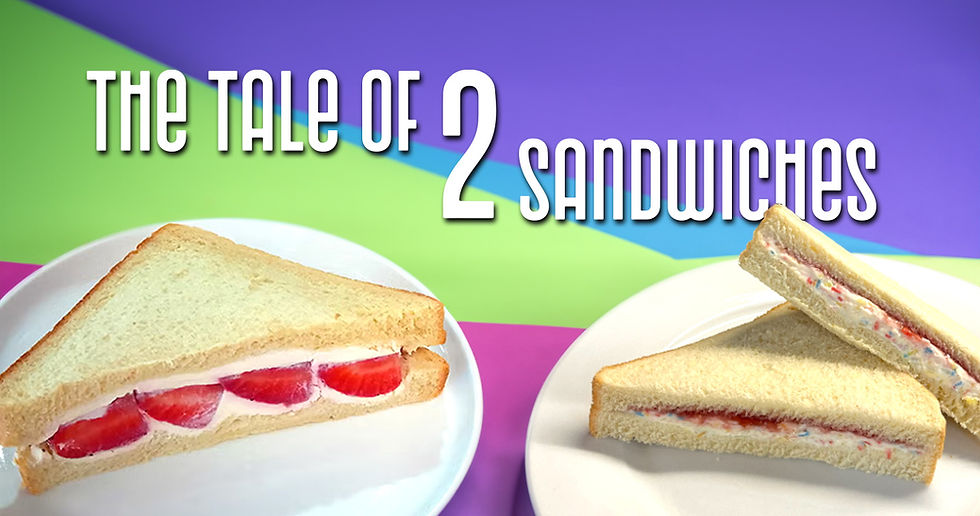The "Clean Label Plus" Challenge: Navigating 'Natural' in the Ultra-Processed Foods Debate
- Rhys Bennett
- Jul 20, 2025
- 3 min read

The conversation around what we put into our bodies is more intense than ever. While "clean label" has been a buzzword in the UK food and beverage industry for years – largely focused on removing artificial colours, flavours, and preservatives – the intensifying debate around Ultra-Processed Foods (UPFs) is pushing this concept to a whole new level. It's no longer just about what's not in the product, but increasingly about what is in it, how it's made, and how 'natural' or minimally processed it truly is. This presents a complex, yet fascinating, challenge for NPD teams across the UK.
Consumers are becoming increasingly savvy, armed with more information (and often, misinformation) than ever before. Recent data shows that a significant portion of UK consumers are aware of the UPF discussion. For instance, a 2023 survey by IGD revealed that 39% of shoppers are actively trying to reduce their intake of highly processed foods. This isn't just a niche concern; it's a growing mainstream movement that demands a sophisticated response from manufacturers.
Beyond 'Free From': Embracing "Clean Label Plus"
The traditional 'clean label' approach focused heavily on 'free from' lists. While still important, the UPF debate nudges us towards a "Clean Label Plus" philosophy. This means a deeper commitment to:
Recognisable Ingredients: Consumers want to understand every item on the back of the pack. If it sounds like something they could find in their own kitchen, that's a win.
Transparent Sourcing: Where do your ingredients come from? Ethical and sustainable sourcing adds another layer of 'cleanliness' in the consumer's mind.
Minimal Processing: This is the trickiest part. It's about finding ways to deliver convenience and safety while minimizing industrial processing steps that might strip nutrients or add unwanted elements. It challenges us to rethink manufacturing processes from the ground up.
For NPD, this means not just removing ingredients, but actively seeking out better ones and simpler processes. It could involve using traditional fermentation techniques, opting for natural texturisers derived directly from plants, or finding innovative ways to extend shelf-life without relying on complex additives.
The Reformulation Tightrope: Taste, Texture, and Trust
One of the biggest hurdles for NPD is reformulating existing popular products. Consumers expect the same great taste and familiar texture, even when ingredients are changed or processes simplified. This is a tightrope walk – a challenge many UK brands are bravely taking on.
Take for example, companies like Heinz, who have been actively working on reducing salt and sugar in their popular sauces and baked beans for years, all while striving to maintain the flavour profiles that consumers love. This kind of gradual, yet persistent, reformulation without compromising core appeal is key. Similarly, brands like Ella's Kitchen in the baby food sector have always championed transparent, simple ingredient lists, essentially embodying the 'clean label plus' ethos from their inception by focusing on organic, pureed fruits and vegetables with no unnecessary additives.
The meat-free sector, too, is feeling this pressure. While offering alternatives, some early plant-based products came under scrutiny for being highly processed. Newer brands like Meatless Farm and THIS.™ (despite some products still involving processing) are keenly aware of the 'natural' perception, often highlighting their simpler ingredient lists, focus on pea protein, and natural flavours as they continually refine their offerings. This indicates a broader industry shift towards more conscious ingredient selection and processing.
The biggest factor in this journey is trust. UK consumers are increasingly critical. A 2023 survey by the Food Standards Agency highlighted that while trust in the food supply chain remains generally high, concerns about food fraud and safety are prevalent, underscoring the need for absolute transparency and clear communication from brands.
Opportunity Knocks: Educating the Conscious Consumer
The UPF debate isn't just a threat; it's a massive opportunity. Brands that can genuinely deliver on "Clean Label Plus" – offering products that are not only free from 'nasties' but also demonstrably wholesome, minimally processed, and transparently sourced – stand to gain significant consumer loyalty.
This requires strong communication. NPD teams need to work hand-in-hand with marketing to educate consumers, explaining why certain ingredients are used, how processing ensures safety and quality, and the tangible benefits of a simpler, cleaner formulation. It's about empowering consumers to make informed choices, rather than just reacting to headlines.
The future of NPD in the UK will be shaped by this evolving understanding of 'natural' and 'processed.' For brands willing to innovate with integrity, the "Clean Label Plus" challenge is ripe with potential to build stronger, more trusted connections with consumers.



